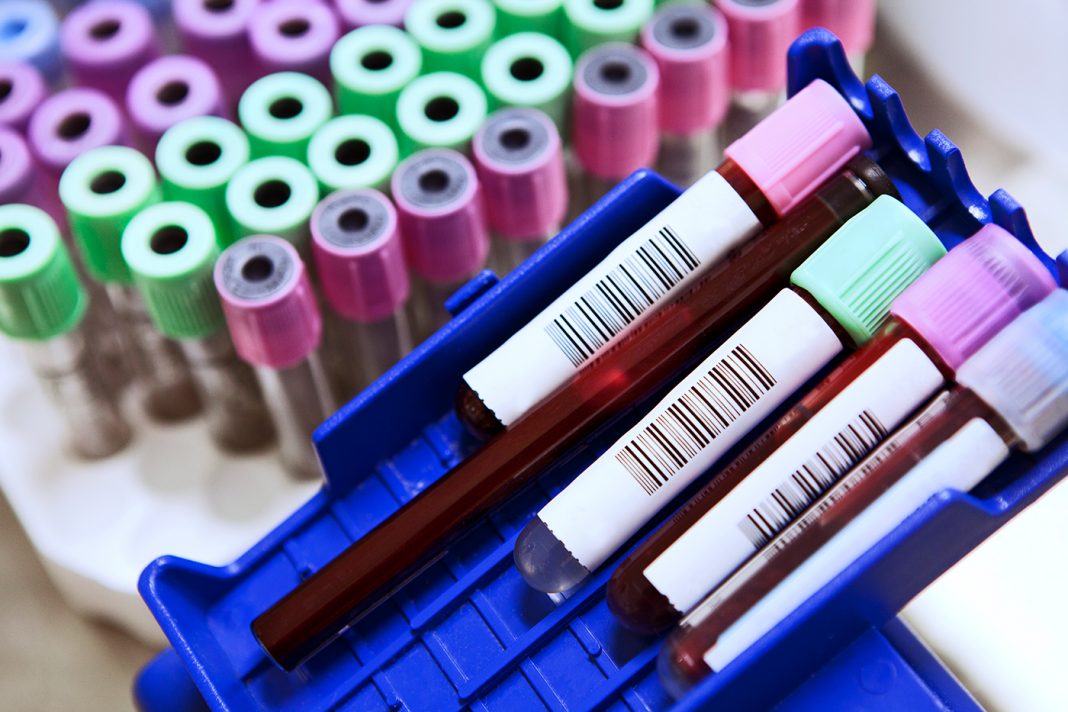Brain cancer remains challenging to diagnose, due to nonspecific symptoms and a lack of cost-effective tests. A new blood test that uses attenuated total reflection (ATR)-Fourier transform infrared (FTIR) spectroscopy in conjunction with machine learning technology, may help advance the detection of brain cancer.
The patented technology, developed by a team at the University of Strathclyde, uses infrared light to produce a “bio-signature” of a blood sample and applies artificial intelligence to check for the signs of cancer.
The research is published in Nature Communications in a paper titled, “Development of high-throughput ATR-FTIR technology for rapid triage of brain cancer.”
In the paper, the researchers describe the development of instrumentation for the analysis of serum that is able to differentiate cancer and control patients at a sensitivity and specificity of 93.2% and 92.8%. In addition, preliminary data from the first prospective clinical validation study are presented.
This research is advancing towards clinical translation and is being commercialized by ClinSpec Diagnostics.
“This is the first publication of data from our clinical feasibility study and it is the first demonstration that our blood test works in the clinic,” noted Matthew J. Baker, PhD, reader in Strathclyde’s department of pure and applied chemistry and CSO with ClinSpec Diagnostics. “Earlier detection of brain tumors in the diagnostic pathway brings the potential to significantly improve patient quality of life and survival, whilst also providing savings to the health services,” he added.
“The results presented are the beginning of a clinical roadmap of studies, that aim to bring the technology through regulatory approval, and ultimately to provide patients with rapid access to diagnosis and treatment,” said Holly Butler, PhD, research and development director with ClinSpec Diagnostics.
Paul Brennan, PhD, senior clinical lecturer and consultant neurosurgeon at the University of Edinburgh said: “Diagnosing brain tumors is difficult, leading to delays and frustration for lots of patients. The problem is that symptoms of brain tumor are quite nonspecific, such as headache, or memory problems. It can be difficult for doctors to tell which people are most likely to have a brain tumor. With this new test, we have shown that we can help doctors quickly identify which patients with these nonspecific symptoms should be prioritized for urgent brain imaging. This means a more rapid diagnosis for people with a brain tumor, and quicker access to treatment.”
The Brain Tumour Charity ambassador Hayley Smith, whose husband Matthew is currently living with a glioblastoma brain tumor is backing this research. They learned in July 2016, three weeks after Matthew’s surgery, that his tumor was a grade 4 glioblastoma. Smith noted: “We urgently need to find new treatments and ultimately a cure as more and more people are being diagnosed with this devastating disease.”
“It is very encouraging to hear that this blood test can lead to a quicker diagnosis for brain cancer. Matthew’s doctors believe that his brain tumor was slowly growing for around 14 years but only started presenting symptoms that could be linked to a brain tumor around six weeks before he ended up in A and E following a seizure,” noted Smith. “Initially these symptoms had been misdiagnosed as a migraine—had this new test been available it might have been spotted earlier. This kind of test will be vital to patients, helping people to get the correct diagnosis quicker which ultimately will help people to get the urgent medical care that they need.”
Patients with brain cancer frequently present with nonspecific symptoms and the final cancer diagnosis can be time-consuming. The researchers have analyzed samples from a prospective cohort of 104 patients, and they found that the blood test could distinguish patients with brain cancer from healthy individuals correctly 87% of the time.
These findings suggest that this approach may be useful to doctors in helping to prioritize patients needing brain scans in order to diagnose tumors. While the proposed system does not offer an absolute diagnosis, it could play a significant role in the diagnostic process as a triage tool.


